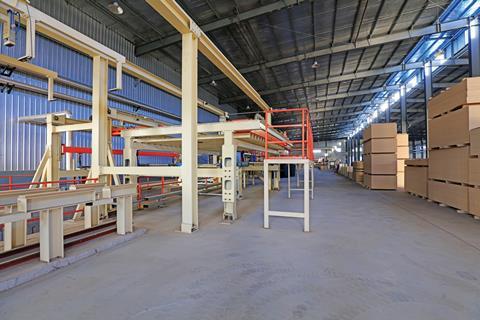It feels like 2018 has started pretty well. Brexit hysteria has died down and markets have started to price in the likelihood of a deal rather better than most remainers feared.

That said, the road will undoubtedly be bumpy at times.
A Corbyn/McDonnell-led Labour government, where property will be in the direct firing line, is the biggest existential threat. This would eventually create many opportunities as markets distort but not before we saw damage to the real economy undermining tenant demand and the flight of global capital seriously affecting value.
Nonetheless, we have never been better braced for bad news. Leverage in the large quoted sector is as low as I can ever recall and the longevity and quality of their debt, priced at super low rates, make balance sheets much more defensive.
Most sensible property investors have used the bull market to purify their portfolios, distilling them down to the best in class, and yet we are seeing share price discounts to NAV at pre-REIT levels.
Traditionally the discounts would be foretelling that values are coming down and yet, ironically, the best-quality real estate will either hold or possibly increase its value this year. It is difficult to understand why an investor would pay a 4% yield for a single prime London office building when they could buy, for example, Landsec or British Land at a 4.25%-plus yield at a 20% to 30% discount to NAV with high-quality assets, great diversification and a proven management team in the price for absolutely nothing. We must assume that different pools of investing capital, often within the same organisation, have different aspirations.
Crowded space
As we have seen with some recently failed long-income REIT IPOs, investors have lost appetite for what is already a crowded and opportunistic space.
This part of the market has latterly been sustained in the majority by private wealth investors and, I have to say, not always intelligently. In 2017, the criteria for IPOs dramatically relaxed, allowing managements with mixed track records to join the party with ‘me too’ offerings rather late in the cycle. These managements are investing little or none of their own money and are being rewarded not on performance but on the size of the net assets so that the more cash they raise the more they will earn, irrespective of whether they make money for shareholders.

That cocktail is guaranteed to deliver at best average results. Starting life as cash shells and competing in a crowded space will result in ever-tightening yields, making their ambitions tougher to achieve while boosting the returns of their competitors who got in early and are already fully invested.
Industrials and warehousing are commanding a disproportionate amount of interest with NAV premiums and unprecedented low yields. This sector seems to be picking up the notional slack of what retail is losing on the basis that every light industrial and warehouse unit will be used as part of some logistics programme, but we are not quite sure what. Surely Amazon can’t occupy all of them?
My money for 2018 is on the discounts narrowing for the best of the big REITs offering a sensible dividend
In practice, many are occupied by smaller businesses that would be quite sensitive to any economic downturn. In their defence, sheds do not suffer great obsolescence. Landlords have to stop being rent collectors and learn to become quasi hoteliers offering better value propositions, moving from being YP (years purchase) to PE businesses, as recent successful sales of serviced office operators illustrate.
My money for 2018 is on the discounts narrowing for the best of the big REITs offering a sensible dividend; the yields of good-quality long-income properties hardening; and secondary and tertiary disappointing – in some cases, quite badly.
Nick Leslau is chairman of Prestbury Investments





























1 Readers' comment